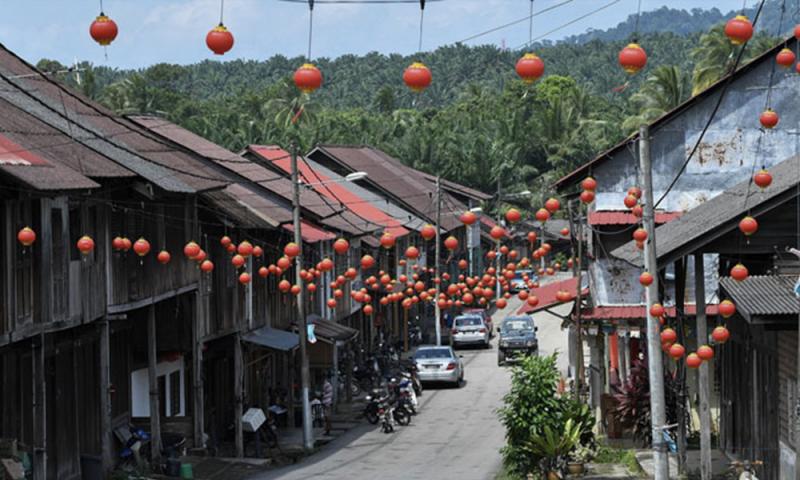
Andrew Sia
Published: Feb 14, 2024
COMMENT | Imagine a Chinese guy realises that Penang prawn mee deserves global heritage status.
So he submits it to, oh say, the World Gourmet Council for recognition. All Malaysians cheer as the country gains yet another international award, right?
Wrong. It becomes yet another racial issue.
“Hey, why didn't you propose mee bandung Muar (Malay soupy prawn noodles) for this?” cries out one politician.
“No, no, no….” shouts another fellow. “Penang prawn mee shouldn't be world heritage. It should be Chinese temples. We know what's best for your culture.”
Best of all, one joker claims: “World recognition for Penang prawn mee means recognising the Chinese as bumiputera. It will undermine Malay rights!”
This is an analogy of what happened when Housing and Local Government Minister Nga Kor Ming announced plans to nominate Chinese new villages as Unesco World Heritage (UWH) sites.
Rather than celebrating another achievement for the country, various Umno and Bersatu politicians protested on specious racial grounds.
Yet, Umno was totally free to propose Malay villages for UWH listing when they were in power for so long. Bersatu also had such power after the Sheraton Move.
So why didn't they do it? Were some too busy enriching themselves, following the glorious example of their Dear Leader Bossku?
And now that Nga is doing something good for the country, is the classic “dengki” or jealousy rearing its ugly head?
Institute of Malay World and Civilisation (Atma) lecturer Faisal Tehrani said: “Malay politicians and activists need to sit down and learn from Nga and his ministry on how to get traditional Malay villages to be recognised too.”
Published: Feb 14, 2024
COMMENT | Imagine a Chinese guy realises that Penang prawn mee deserves global heritage status.
So he submits it to, oh say, the World Gourmet Council for recognition. All Malaysians cheer as the country gains yet another international award, right?
Wrong. It becomes yet another racial issue.
“Hey, why didn't you propose mee bandung Muar (Malay soupy prawn noodles) for this?” cries out one politician.
“No, no, no….” shouts another fellow. “Penang prawn mee shouldn't be world heritage. It should be Chinese temples. We know what's best for your culture.”
Best of all, one joker claims: “World recognition for Penang prawn mee means recognising the Chinese as bumiputera. It will undermine Malay rights!”
This is an analogy of what happened when Housing and Local Government Minister Nga Kor Ming announced plans to nominate Chinese new villages as Unesco World Heritage (UWH) sites.
Rather than celebrating another achievement for the country, various Umno and Bersatu politicians protested on specious racial grounds.
Yet, Umno was totally free to propose Malay villages for UWH listing when they were in power for so long. Bersatu also had such power after the Sheraton Move.
So why didn't they do it? Were some too busy enriching themselves, following the glorious example of their Dear Leader Bossku?
And now that Nga is doing something good for the country, is the classic “dengki” or jealousy rearing its ugly head?
Institute of Malay World and Civilisation (Atma) lecturer Faisal Tehrani said: “Malay politicians and activists need to sit down and learn from Nga and his ministry on how to get traditional Malay villages to be recognised too.”
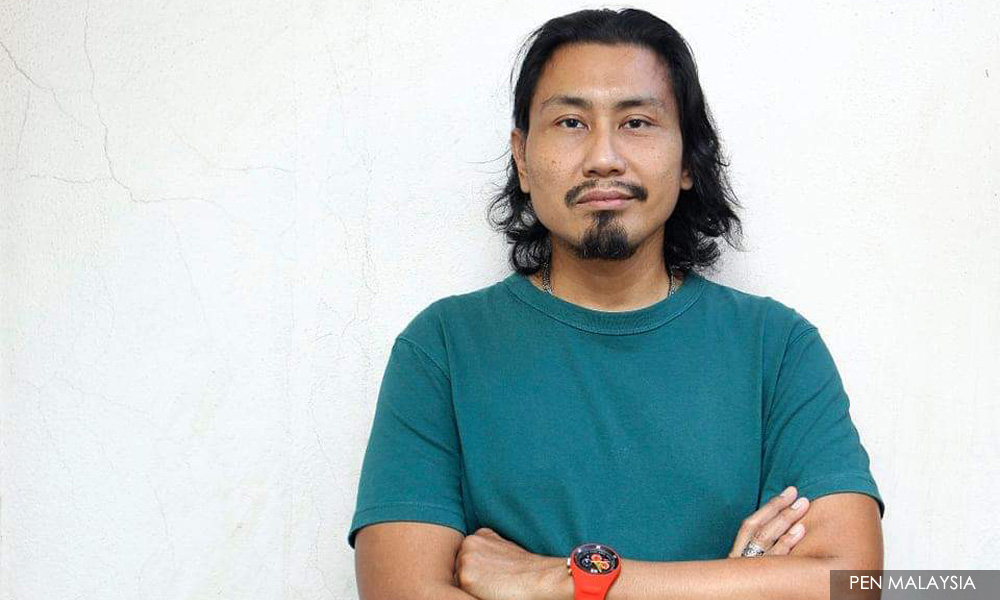
Faisal Tehrani
He added that Malay politicians have done little for kampungs.
“Nothing has been done to elevate Kampung Baru and Kampung Datuk Keramat in Kuala Lumpur for instance,” he lamented.
Hard work to gain recognition
What Faisal didn't ask is why Malay politicians have neglected to do more. Was it because they were in their cosy comfort zones and didn't want to do the hard work of seeking world heritage status?
UWH recognition for Penang and Malacca in 2008 was not easy to achieve. Heritage activists had to push this for many years before it became a reality.
They had to battle public apathy, which once viewed heritage properties as “dirty, run-down” buildings, the interests of developers and associated politicians plus government indifference.
For instance, in May 2002, DAP pointed out that the then Malacca Municipal Council (MPMBB) had allowed six historic shophouses to be demolished – including the first Umno office in the state.
He added that Malay politicians have done little for kampungs.
“Nothing has been done to elevate Kampung Baru and Kampung Datuk Keramat in Kuala Lumpur for instance,” he lamented.
Hard work to gain recognition
What Faisal didn't ask is why Malay politicians have neglected to do more. Was it because they were in their cosy comfort zones and didn't want to do the hard work of seeking world heritage status?
UWH recognition for Penang and Malacca in 2008 was not easy to achieve. Heritage activists had to push this for many years before it became a reality.
They had to battle public apathy, which once viewed heritage properties as “dirty, run-down” buildings, the interests of developers and associated politicians plus government indifference.
For instance, in May 2002, DAP pointed out that the then Malacca Municipal Council (MPMBB) had allowed six historic shophouses to be demolished – including the first Umno office in the state.
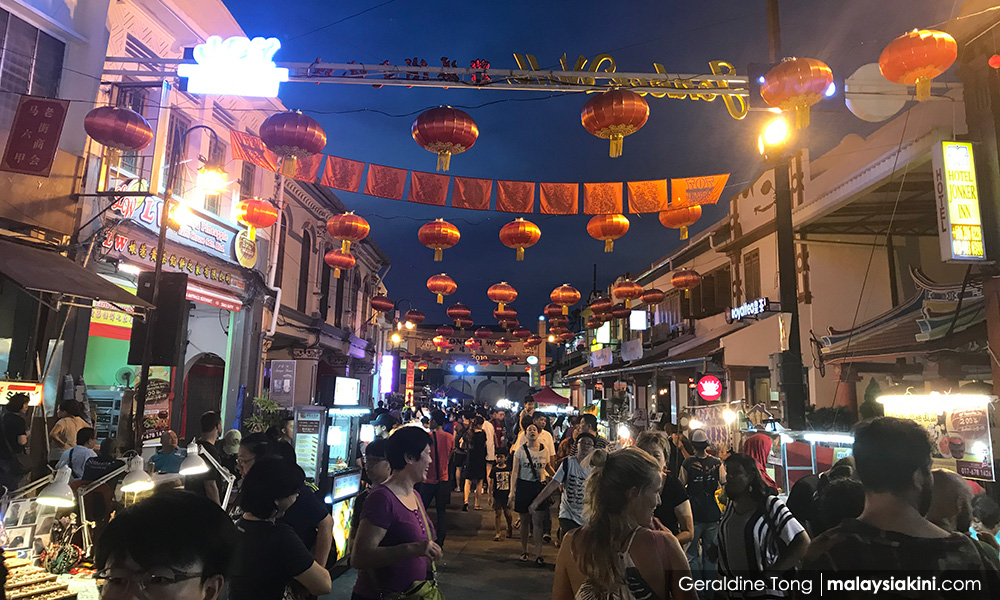
Jonker Walk
In December 2002, another three heritage shops in Jonker Street were torn down, causing a national uproar. But as “punishment”, the Umno-appointed president of MPMBB was slated for transfer…to head the Melaka Muzium Corporation. What an irony!
Some heritage advocates also lamented that the government didn't seem keen to fund the conservation of Chinese-related buildings. In Malacca, many antique shophouses were “saved” from gradual decay by Singaporean investors who turned them into boutique hotels.
However, some heritage in Malacca did get official funding, like the Sultanate Palace Museum and the huge Hang Tuah Museum.
Hmmm…. is there any bias in how conservation funds are allocated?
We can also question how funds are spent. For example, the repainting of the famous red clock tower at Dataran Stadthuys in 2022 by the Umno-controlled Malacca Historic City Council (MBMB) had a whopping RM100,000 bill.
Wait, was it a repainting job? Or a gold plating job?
In December 2002, another three heritage shops in Jonker Street were torn down, causing a national uproar. But as “punishment”, the Umno-appointed president of MPMBB was slated for transfer…to head the Melaka Muzium Corporation. What an irony!
Some heritage advocates also lamented that the government didn't seem keen to fund the conservation of Chinese-related buildings. In Malacca, many antique shophouses were “saved” from gradual decay by Singaporean investors who turned them into boutique hotels.
However, some heritage in Malacca did get official funding, like the Sultanate Palace Museum and the huge Hang Tuah Museum.
Hmmm…. is there any bias in how conservation funds are allocated?
We can also question how funds are spent. For example, the repainting of the famous red clock tower at Dataran Stadthuys in 2022 by the Umno-controlled Malacca Historic City Council (MBMB) had a whopping RM100,000 bill.
Wait, was it a repainting job? Or a gold plating job?
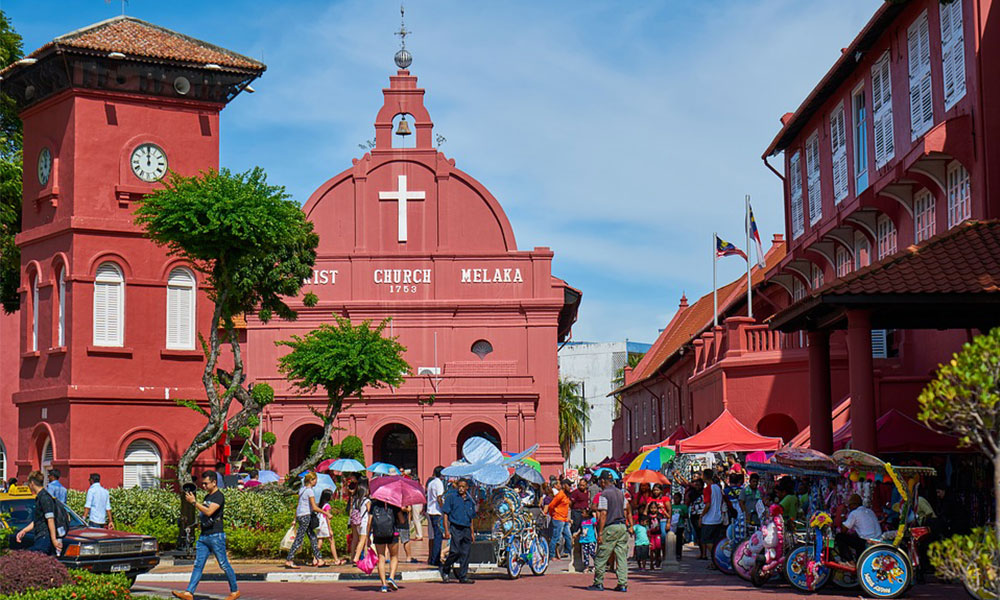
Remembering victory over communism
The brouhaha over Nga’s idea shows that racial relations in Malaysia are so toxic that anything Chinese can be used to provoke an “allergic” reaction.
Yet, Chinese new villages represent one of the world's few victories over a communist insurgency. They were established as internment camps by the British in the late 1940s and early 1950s to cut off food and other support for communist rebels – thus protecting British commercial interests in Malaya.
The Americans tried to copy the new village model in Vietnam, calling them “strategic hamlets”. But we all know who won the Vietnam War.
Since Malaysia is now a capitalist country which fought communism successfully, we should be proud of the role that Chinese new villages played in this.
Why not propose both?
Some say Nga should have been politically smarter to propose Malay villages along with Chinese ones for heritage status.
But Selangor already included Malay villages in its recently gazetted Gombak-Hulu Langat Geopark area. This, said its Menteri Besar Amirudin Shari, is the first step to UWH status.

Amirudin Shari
So what's wrong with Nga adding Chinese villages to Selangor's heritage mix?
In 2008, then Perak MB Mohammad Nizar Jamaluddin proposed to give land titles to both Chinese new villages and Malay “kampung tersusun” (organised villages). This was to fulfil an election promise by the then Pakatan Rakyat state government.
It should have been celebrated. After all, Perak had been in economic doldrums since the collapse of tin mining. With secure land titles for both Malay and Chinese villages, investors could come in.
But no, this was instead ruthlessly racialised by some quarters, which accused Nizar of being a “puppet” of DAP.
How had he “betrayed” the Malays? As political analyst Wong Chin Huat wrote in 2009, Nizar granted land titles to “working-class Chinese in new villages”.
So what's wrong with Nga adding Chinese villages to Selangor's heritage mix?
In 2008, then Perak MB Mohammad Nizar Jamaluddin proposed to give land titles to both Chinese new villages and Malay “kampung tersusun” (organised villages). This was to fulfil an election promise by the then Pakatan Rakyat state government.
It should have been celebrated. After all, Perak had been in economic doldrums since the collapse of tin mining. With secure land titles for both Malay and Chinese villages, investors could come in.
But no, this was instead ruthlessly racialised by some quarters, which accused Nizar of being a “puppet” of DAP.
How had he “betrayed” the Malays? As political analyst Wong Chin Huat wrote in 2009, Nizar granted land titles to “working-class Chinese in new villages”.

Mohammad Nizar Jamaluddin
Never mind that he had given more land titles to Malay villagers or that BN itself had “given land away to non-Malay business interests.”
So it didn't matter that Nizar had helped both Malays and Chinese villages in 2008. Thus, even if Nga had proposed Malay villages for UWH status, chances are he would probably still be demonised.
The root disease here is racism. Or as Amirudin described it, “issues they can spin for short-term political interests do not bring benefits to racial harmony and stability in the country.”
Indeed, in this country race is often weaponised to score political points. And guess who are the usual punching bags?
Never mind that he had given more land titles to Malay villagers or that BN itself had “given land away to non-Malay business interests.”
So it didn't matter that Nizar had helped both Malays and Chinese villages in 2008. Thus, even if Nga had proposed Malay villages for UWH status, chances are he would probably still be demonised.
The root disease here is racism. Or as Amirudin described it, “issues they can spin for short-term political interests do not bring benefits to racial harmony and stability in the country.”
Indeed, in this country race is often weaponised to score political points. And guess who are the usual punching bags?
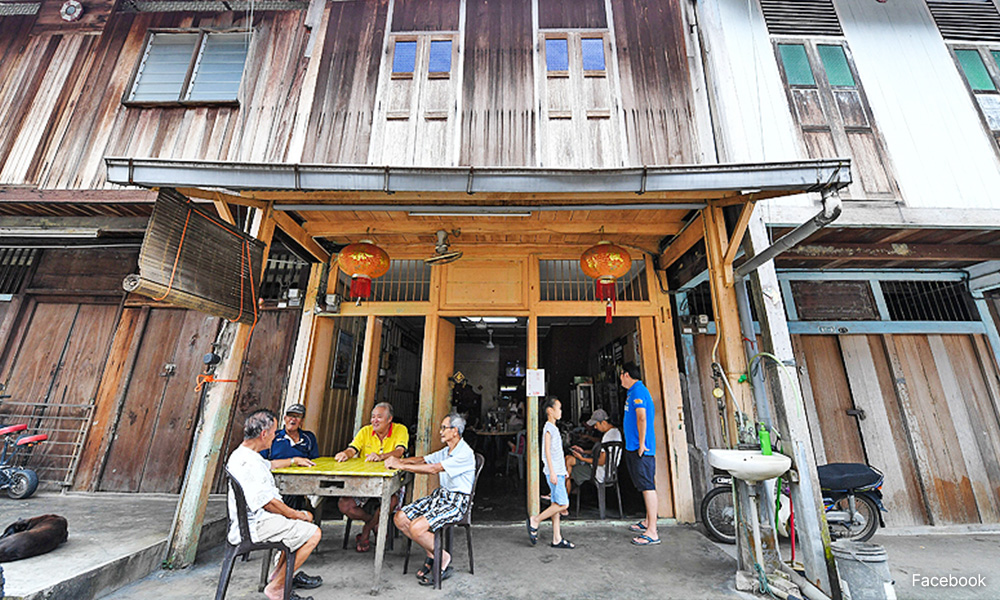
Please, enough of this destructive racism. To return to our analogy, let's instead celebrate that someone wants to put Penang prawn noodles on a world pedestal.
Instead of tearing that down, let it motivate others to propose similar global recognition for mee bandung Muar, nasi lemak, Indian curry fish head, Kadazan hinava, Iban pansuh and all the other cultural wealth that this great country is blessed with.
ANDREW SIA is a veteran journalist who likes teh tarik khau kurang manis. Readers are welcome to give ideas for him to brew at tehtarik@gmail.com

Highlighting Chinese New Villages inevitably highlights the controversial and complex history of Chinese in Malaya during the Emergency.
ReplyDeleteSome - perhaps not a majority - of the New Villages were undoubtedly Commie backers and collaborators.
Nga deliberately dredging up an unsavoury aspect of the past is likely unwise.
Facing the TRUTH of unsavoury aspect of the past is likely unwise!
DeleteMfer, u do act like head burying ostriches!